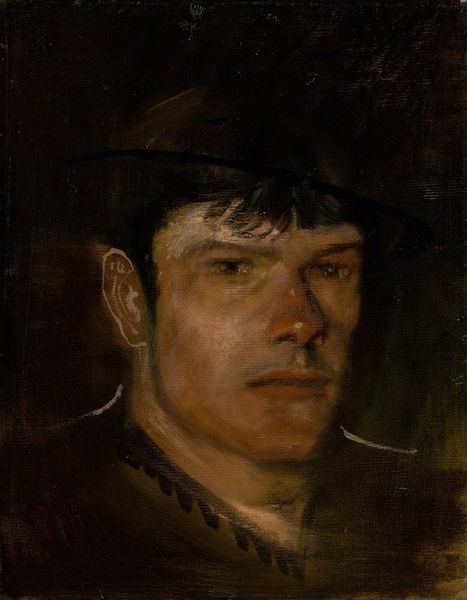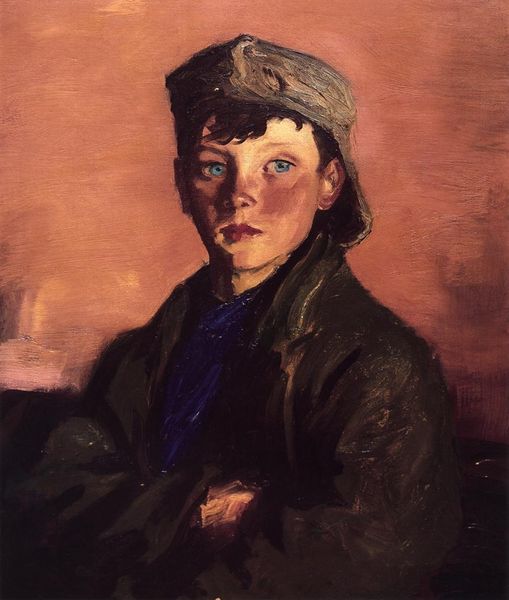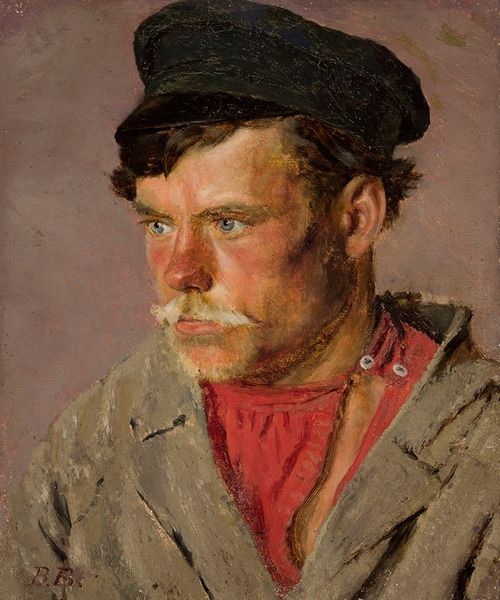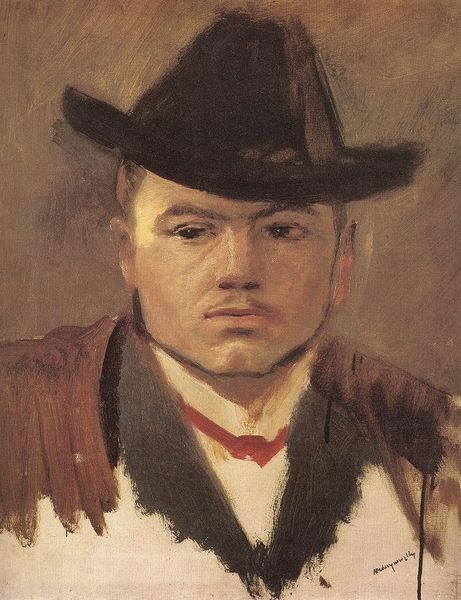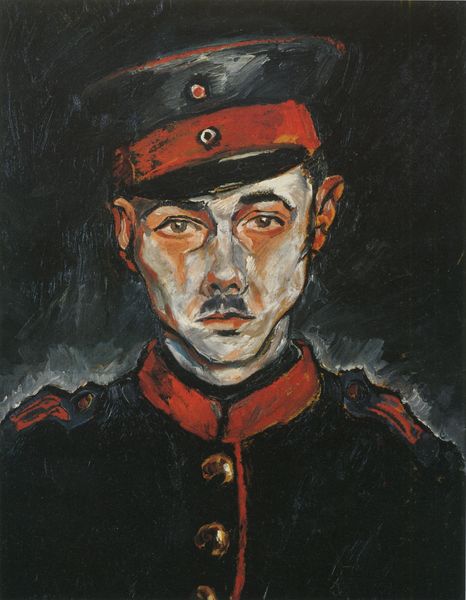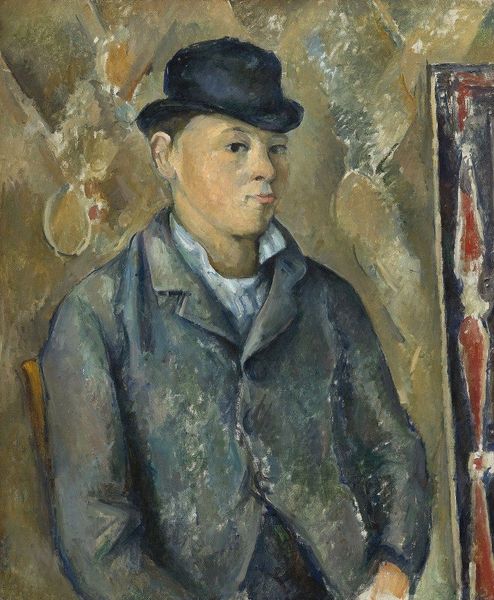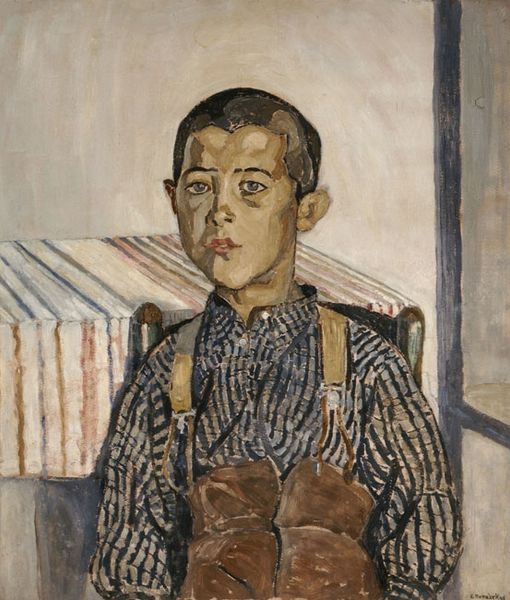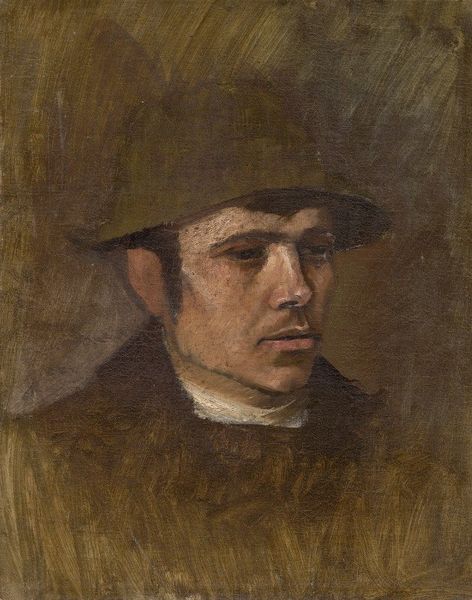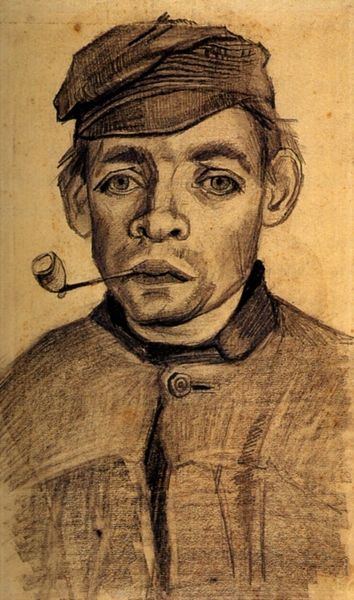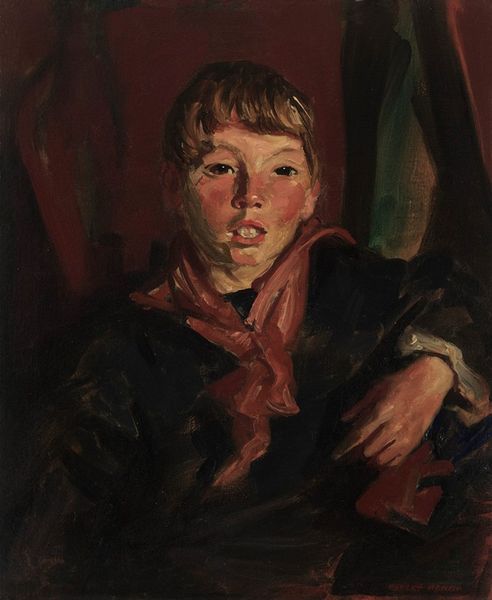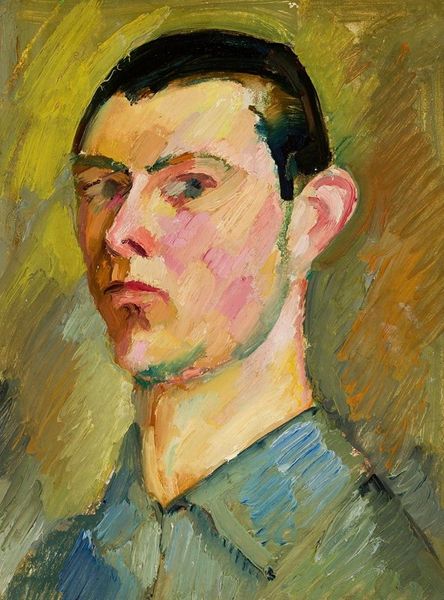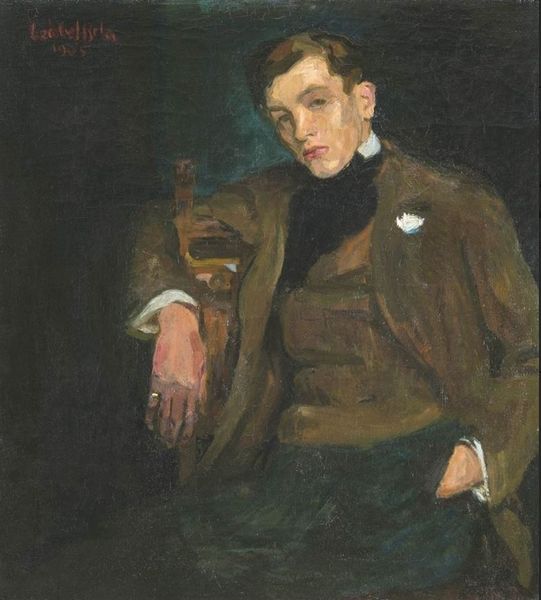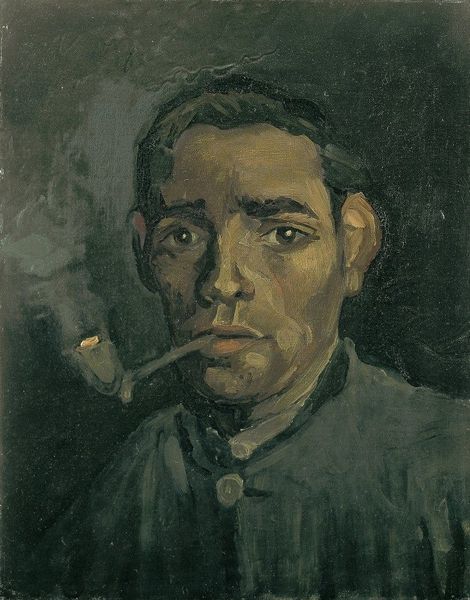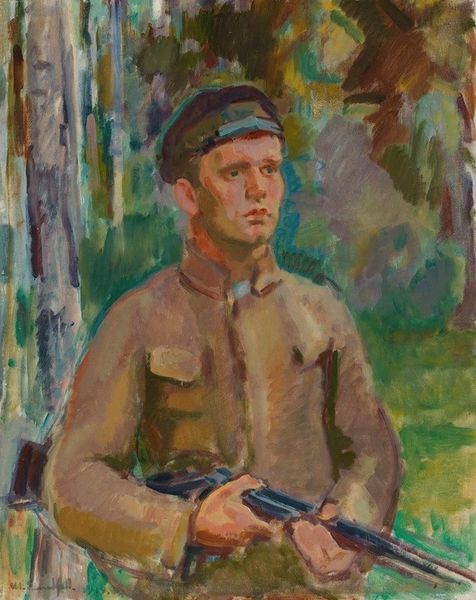
Copyright: Public Domain: Artvee
Ladislav Mednyánszky painted this portrait of a young man in a fur cap, sometime in the late 19th or early 20th century. Mednyánszky was a Hungarian artist, working at a time of great social change in Europe. His choice of subject matter sets him apart from many of his contemporaries. Instead of painting the wealthy, he often depicted the working class, the poor, and the marginalized. The sitter’s gaze is averted, perhaps suggesting introspection or a sense of unease. The fur cap and simple attire indicate a working-class background, a social class often overlooked in the art world of that time. Mednyánszky’s focus on this demographic challenges the conventions of portraiture. Was it to elevate the status of the working class or to provoke empathy among the upper classes? To understand Mednyánszky's motivations fully, we can look to historical records, letters, and critical reviews from the period. The meaning of art shifts according to its social and institutional context.
Comments
No comments
Be the first to comment and join the conversation on the ultimate creative platform.
